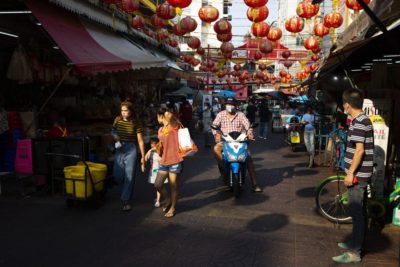


Conservationists are demanding an end to the wildlife trade to stamp out the root cause of zoonotic outbreaks such as the coronavirus pandemic, which likely originated at a wet market in Wuhan, China and has infected more than 2,800 people in Thailand.
Speaking at the Foreign Correspondents’ Club of Thailand (FCCT) recently, Steven Galster, the founder of Freeland, an international counter-trafficking organisation, called for efforts to end the commercial wildlife trade and expand natural habitats.
“If we can do that, we will dramatically reduce the risk of recurrent pandemics. That is exactly what our [global] alliance and campaign is about. It is called ‘End Pandemics’,” he told a virtual forum ahead of its campaign launch on Earth Day yesterday.
Infecting nearly 2.5 million worldwide, the Covid-19 coronavirus is thought to have originated in bats and was transmitted to humans via other wild animals, possibly pangolins, the most-commonly illegally trafficked mammal used as a food and in traditional Chinese medicine.
Similarly, WildAid recently launched its #EndTheTrade campaign.
A vaccine against outbreaks: Ban wildlife trade
Asean unites on illegal wildlife trade
Myanmar burns ivory, skins to fight wildlife trade
John Baker, WildAid’s chief programme officer, said he pledged support for the government’s efforts in enforcing wildlife protection laws and launching demand reduction campaigns.
World Wide Fund for Nature (WWF), recently published an opinion poll conducted on the wildlife trade in the context of the Covid-19 outbreak in March.
It revealed that 15% of Thai respondents claimed that they or an acquaintance had purchased wildlife products at markets in the past 12 months.
The poll report added these buyers were mostly male (55%) and aged between 18-35 years old (46%). The wildlife they bought were live birds (59%), snakes (37%) and bats (30%).
Maethinee Phassaraudomsak, a data and research officer at TRAFFIC Southeast Asia, an international wildlife trade monitoring group, said Thailand has served as a major source and transit point in the region.
“We have seen the smuggling of live pangolins, turtles, and monitor lizards to border areas or the trafficking of body parts via our airports to Vietnam and China. Wild animals are also shipped abroad,” she told the Bangkok Post.
Ms Maethinee said wet markets in the provinces often sell bushmeat and also offer live animals under the counter to customers.
“They are also available on the internet. Consumers are those who believe that these items possess supernatural powers,” she said.
“Emerging infectious diseases could result from the packing of these wild animals [into crammed living conditions],” she added.
Stay in touch and get the latest WildAid updates.
SIGN UP